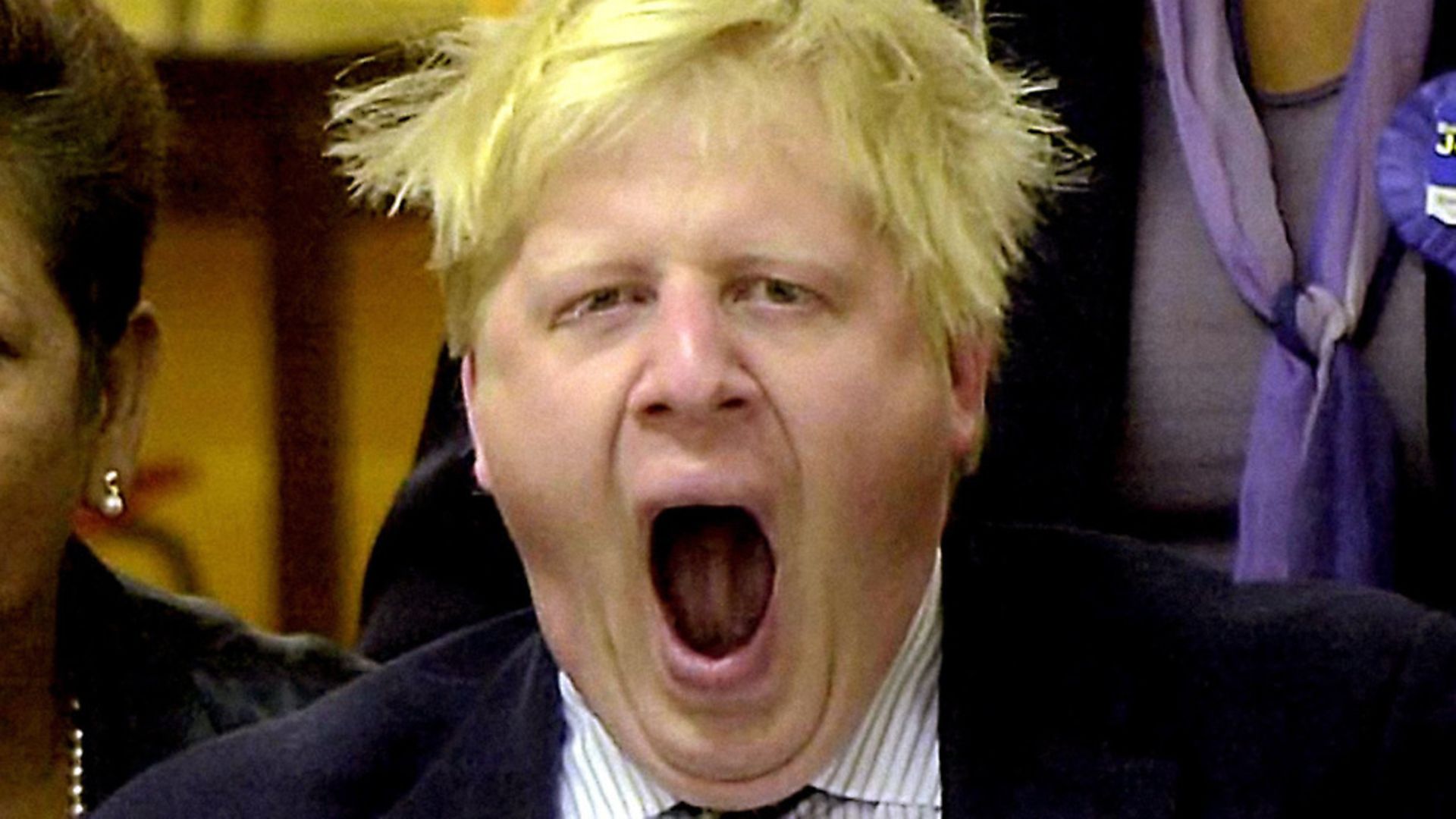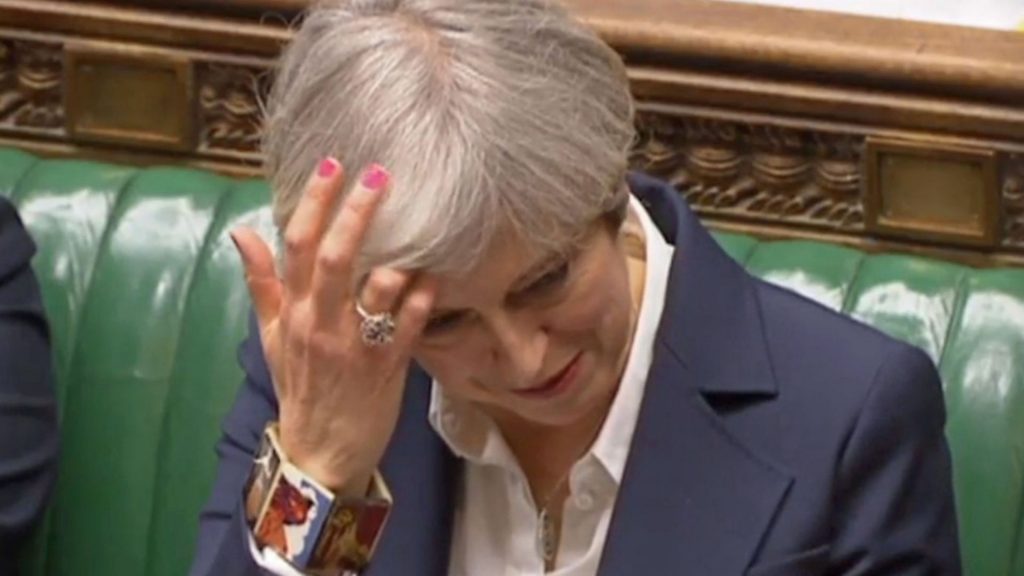
Having won a great victory, Brexiteers seem thoroughly bored by the prize. But the ennui around Brexit plays into the hands of the zealots

‘I want to see a truly global Britain that is really outward-looking with good trade deals around the world’. That’s Theresa May’s most recent Brexit pronouncement; or maybe her least recent. They all have the neutral, slightly robotic ring of a recorded announcement from a languishing dictator whose hench-people are trying to persuade the populace they’re not ill.
I am desperately interested in Brexit. It’s my job to be interested in Brexit. And even if it weren’t, I would see that this was an event of the kind of irreversible significance, that any responsible citizen would want to concentrate on. But this… In the old days, we used to bemoan a sentence that was a set of clichés strung together; I miss political clichés like you’d miss your university boyfriend, upon discovering you’re married to a religious fundamentalist with a gambling problem.
Now, all we get is platitudes – statements with which it would be perverse to disagree. Who doesn’t want to see a global Britain? Who wants that anything other than truly? Who wants a Britain that looks inwards? Who wants trade deals that are bad? Who wants to deal with only a small portion of the world? It’s not just that it’s insulting, to be treated to this spongy, frictionless pap in lieu of leadership and direction. It’s not just that it’s so unrealistic, so childish – it’s not just the fact that you can throw around words like ‘global’, but British trade deals predominantly occur with countries less than 2,000 kilometres away, for the same reasons that marriages mainly occur between people who live in the same country, for reasons we could describe as ‘the practical nuts and bolts of the physical universe’.
No, the main problem with Theresa May’s Brexit pronouncements is that they are so boring. They are deadly. They are like reading instruction manuals to a game you don’t want to play, like staying awake for Antiques Roadshow after a 24-hour flight. And the indolent blather of the speeches is just the beginning. The details are a mind-numbing combination of intricacy and opacity. One ought to be able to keep up with the emissaries for each of the 27 member states – announced next Tuesday – but realistically, how much will their names mean to us? What insight into their agenda or likely attitude will this information trigger? On what basis will they calculate the divorce costs, and on what basis can I adjudicate its fairness? How many of us know the difference between the negotiating mandate and the negotiating guidelines, or wants to keep up with who needs to sign off on which?
Brexit was caused, they say, by the disconnect between the metropolitan bubble and the ordinary people, the London elite floating like an aneurysm in the bloodstream of real, authentic Britain – different conversations, different fascinations, different lives. Well, thank God we’ve managed to resolve that: now we’ve hitched our entire political machine to a process of epic complexity that holds no interest for any of us.
The news agenda, understanding this, concentrates the full glare of its beam on the issues that are either outlandish or trivial. Shall we go to war against Spain? Anyone here remember what it’s like being at war? Come on, though, was it all bad? Or weren’t there bits that were quite fun? What does the National Trust think of Easter eggs, and how much does May disagree with them? Speaking of eggs, didn’t someone throw an egg at a Saudi Arabian minister? Where does that leave us, diplomatically? Hasn’t Boris Johnson got anything contentious to say? It may be stupid, but at least we’ll all know where we stand.
And meanwhile, all the challenges remain, of making lives, families, communities and society work, except without a government prepared to address or even acknowledge them. I am thoroughly sick of being told by anyone, whether politician or pollster, what ‘the people’ are interested in. It’s not a voguish distrust of experts; it’s that I query the expertise.
There is, as the cultural theorist Stuart Hall once said, ‘no such thing as ‘the people’. It’s a fallacy, a discursive device for summoning the people that you want. You’re constructing the people, you’re not reflecting the people. ‘The people’ has always been a moving signifier.’ So I’m not going to tell you what real people, on real streets, in real cities, are interested in. I’m just going to tell you what politics I’m interested in.
I’m interested in the crisis in the NHS; not because I’m ill right now, but because it’s the single most creative, constructive, inventive, optimistic institution I’ve ever seen, in this nation or any other.
The sight of its staff having their pay frozen, year after year, their workload grow, their conditions worsen; our hospitals near collapse, humane standards, for waiting times and access, axed in a single press release or sometimes without a word; all the while, meaningless utterances issuing from the government, that we’re spending more on healthcare than ever before, even as everyone involved can see this isn’t true – well, it’s sickening, isn’t it? Which is rather inconvenient, considering that we live in country that can no longer afford for us to be sick.
I’m interested in the crisis in the prison service, which, again, used to be world-beating: detailed, imaginative projects supported prisoners with poor mental heath, prisoners vulnerable to religious extremism, prisoners being bullied, unable to read: all of this vital work, improving an unquantifiable nexus of incredibly hard lives corroded overnight by staff shortages, undertaken deliberately, through funding cuts. The national debt isn’t going down. We have nothing to show for any of this, no benefit against which to balance the new brutality of the prison estate.
I’m interested in having emergency services that have time to answer 999 calls, schools that aren’t having their budgets slashed for no reason, universities with international affiliations, access not just to the funding but to the best ideas of the continent.
I’m interested in the changes to benefits, and in what moral universe anyone would choose to make bereaved families poorer, or large families desperate, or disabled people destitute, to save an amount of money that, across an entire parliamentary term, in all likelihood won’t come close to the figure we’ll fritter away trying to exit Europe while making sure our retirees don’t have to leave Marbella.
I’m interested in street violence, against refugees, against women in hijabs, against Polish people. I’m interested in the fact that rents are going up faster than wages, and have been for a long time, and where and when that will end.
The Leave Campaign did not, in retrospect, talk very much about Europe. Had it created any literature on the subject, there are all kinds of things we would know: where it really stood on the single market; what its intentions were on border control; how much it had been intending to spend on exiting, even just a ballpark figure; what ‘sovereignty’ meant in practise, and how we would know when it had been restored; whether the Great British Repeal bill had really been lifted wholesale from EU law, and why, if that was the case, it was necessary to get away from EU law in the first place.
Such transparency may have weakened May’s hand at the negotiating table, but balancing that against knowing what people had actually voted for, it would have been a reasonable trade off. Going in to the deal with a secret agenda is a relatively short-lived advantage anyway; especially when everybody suspects that the real reason for keeping your cards so close to your chest is that they’re all threes.
But it’s interesting to consider, since they didn’t talk about Europe or any of its features, what they really did campaign on: immigration, and the NHS. The border issue covered almost everything – from low wages through over-stretched public services, to housing shortages – that anyone could possibly be disgruntled about. And just to sweep up the voter corps who no longer had jobs and no longer paid rent, the NHS was thrown in for good measure, on the slenderest, most tangential pretext, that the EU cost money, healthcare also cost money. If you were to spend nothing on the first, you could spend more on the second. Leave aside the shocking bad faith of the arguments, and their strategy is instructive.
What if we were to stop talking about Europe and start talking about wages, what will happen to them when investment disappears and the skilled workforce contracts? What if we were to start talking about the NHS, and how much better off it would be under a government who believed in funding it, valued its staff whatever their nationality, but also valued its own citizens enough to train them without cutting their bursaries? What if we were to talk about social security and the sheer senselessness of making cuts that will inevitably cost more than they save? What if we were to recast sovereignty as a question about what kind of nation we want to be, how generous, how kind, how safe, how humane?
If nobody’s interested in Europe, it’s because Europe isn’t interesting; but the values that made any of it worthwhile are the same values that give politics its meaning, and inspire its passions.
Zoe Williams writes political commentary, interviews and reviews for The Guardian and the New Statesman










